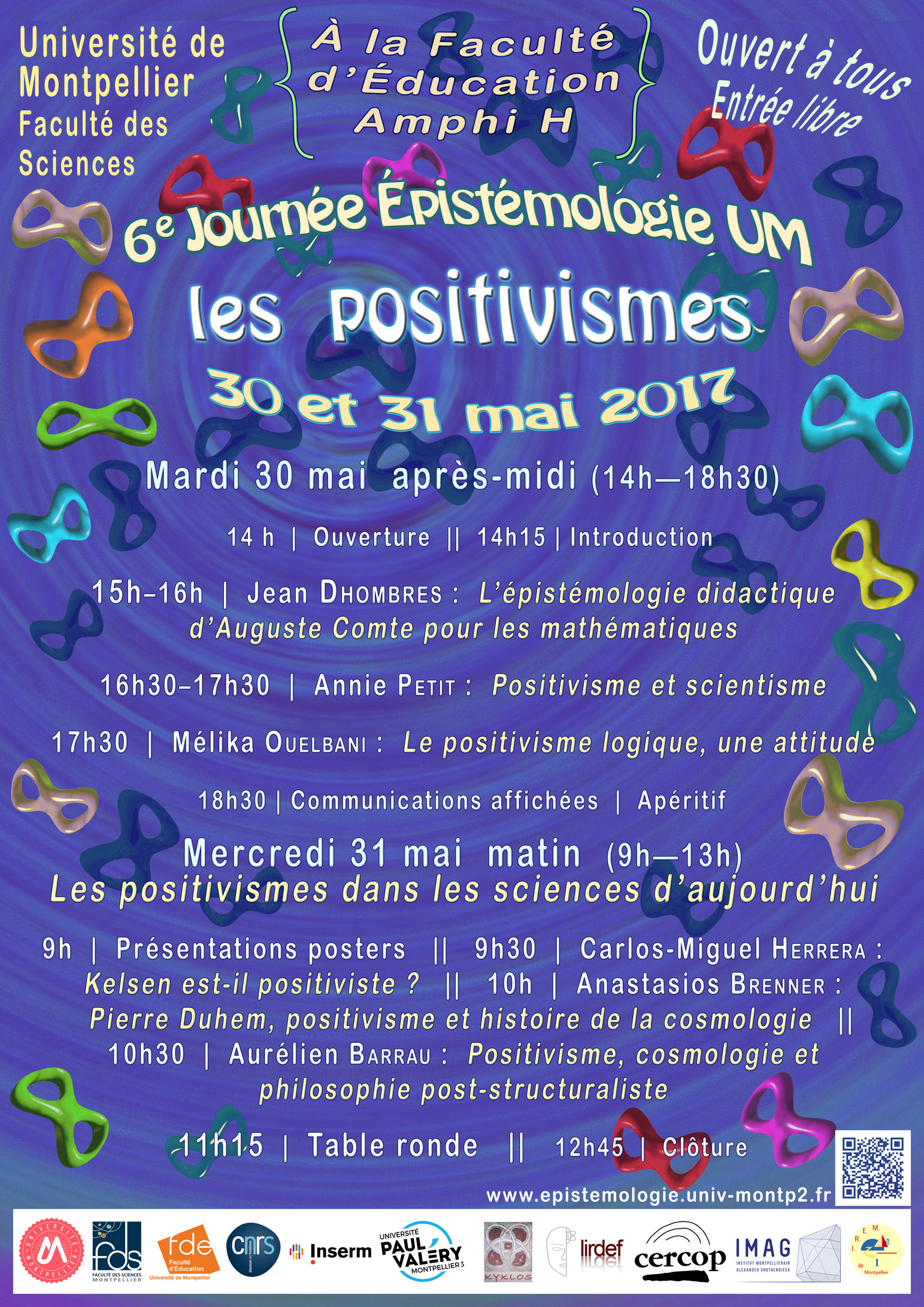6th Epistemology Day
Positivism
May 30 and 31, 2017
After examining epistemology's relationship with didactics (2014), models (2015), then complexity (2016), this sixth Epistemology Day looks at the variety of positivisms.
The links between science and positivism are obvious. Positivism" emerged in the 19th century, at a time when scientific knowledge was being used to rationalize all areas of society, including those that had hitherto escaped its grasp, such as values. We believe it is useful to recall the periodization that Auguste Comte, founder and emblematic figure of positivism, established in the history of thought: after the religious age, which was succeeded by the metaphysical age, the philosopher announced in the 19th century the advent of the positive age, to which humanity was finally acceding by substituting science, to understand the world, for any other mode of explanation and representation. This is the age, according to Auguste Comte, when man is interested in the "how" rather than the "why" of phenomena, as if philosophical astonishment were to give way to scientific astonishment.
It's reasonable to assume that this "advent of the age of science" is not viewed in the same way by philosophers, sociologists, jurists, historians, mathematicians, physicists, biologists and economists. The positivism of Auguste Comte is not that of Léon Duguit, nor that of Hans Kelsen, nor even that of Ernst Mach or the Vienna Circle. In this meeting, we will attempt to shed light on the points of divergence and convergence between the different positivisms. One point of convergence between these different traditions lies in a common monistic conception of the world: while back-worlds, those in search of which man is led to ask metaphysical questions, should no longer arouse the interest of the scientist, the scientific gaze should focus on a single world, that which can be experienced. Science solves enigmas devoid of any transcendence, and soothes astonishment by explaining the unfolding of phenomena; it does not provide answers to the question of their intimate essence. Nevertheless, it is likely that the various positivisms draw various ethical and philosophical conclusions from this posture.
The aim of this meeting is to highlight the diversity of positivisms, and to question their legacies in today's sciences.
The Day will in fact take place over two half-days, the afternoon of May 30 and the morning of May 31. It will be structured around several plenary lectures, invited papers and a round table on positivism in today's sciences, and poster presentations.
This day is open to all interested parties (researchers, teacher-researchers, students, secondary and primary school teachers...).
